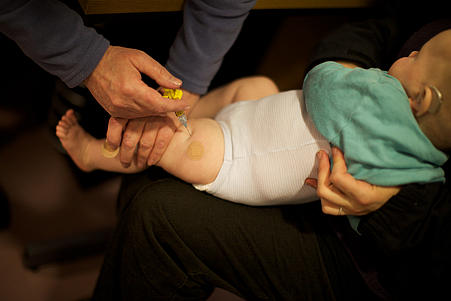Immunisation
 Immunisation ensures you are protected against serious diseases like measles, mumps, whooping cough, polio and meningitis. Before the availability of vaccines, serious diseases have caused the death of many children in the UK. Immunisation prevents the spread of diseases, where our bodies are able to fight diseases whenever we come in contact with them. According to the World Health Organisation, the introduction of effective vaccines is seen as one of the greatest intervention of public health because it has hugely reduced childhood mortality (death).
Immunisation ensures you are protected against serious diseases like measles, mumps, whooping cough, polio and meningitis. Before the availability of vaccines, serious diseases have caused the death of many children in the UK. Immunisation prevents the spread of diseases, where our bodies are able to fight diseases whenever we come in contact with them. According to the World Health Organisation, the introduction of effective vaccines is seen as one of the greatest intervention of public health because it has hugely reduced childhood mortality (death).
Evidently, the importance of immunisation cannot be overemphasized. When a large percentage of the population has become immune, infectious diseases cannot spread, therefore providing an indirect protection to the group that cannot be immunised (vulnerable) known as herd immunity.
When to Immunise?
You can get information about available vaccines and the diseases they prevent, for the categories of ages from childhood to adulthood.
- Babies from 2 months up to 13 months old are vaccinated to help protect against diphtheria, tetanus, whooping cough, polio and other diseases.
- Children age 2 to 11 years are vaccinated to protect against diphtheria, tetanus, whooping cough, polio, measles, mumps, rubella and flu (taken annually).
- Teenagers age 12 to 18 years are vaccinated against tetanus, diphtheria and polio also, vaccinated against measles, mumps and rubella if they are yet to complete their two doses.
- Teenagers are also vaccinated against the meningococcal bacteria type A, C, W, and Y that causes meningitis and septicaemia.
- Human papilloma virus vaccine is offered to 12 to 13 years teenage girls to prevent cervical cancer.
- Older adults age 65 and above, or adults who have long term health problems are recommended to get the flu vaccine for protection against the flu virus. Pneumococcal vaccine is recommended to protects adults from a form of meningitis bacteria caused by a pneumococcal bacteria. Shingles (herpes zoster), which is common among 70 years and older adults, is prevented or subdue with the shingles vaccine.
Know when to immunise, for each age category and the respective diseases they are protected against.
Routine and non routine immunisation
Find out about the vaccines and diseases in the routine and non routine immunisations like DTaP/IPV, Hib/MenC, HPV etc and BCG, Flu, Travel vaccines respectively.
The NHS Grampian Health Protection Team is responsible for the implementation of the UK National Immunisation Policy, details of which can be found at www.healthscotland.com/topics/health/immunisation/index.aspx. The Team is also responsible for the implementation of the annual Seasonal Flu Immunisation Campaign. Flu vaccine uptake data can be accessed at www.hps.scot.nhs.uk.
Uptake figures for routine childhood immunisation at 12, 24 and 72 months are published quarterly and can be accessed at www.isdscotland.org .
Published: 27/10/2022 09:10